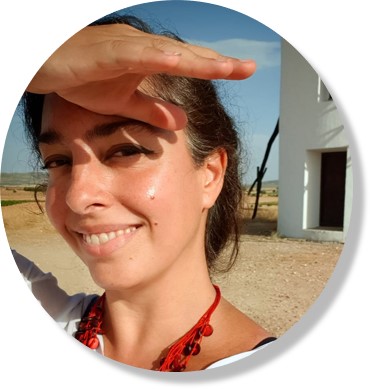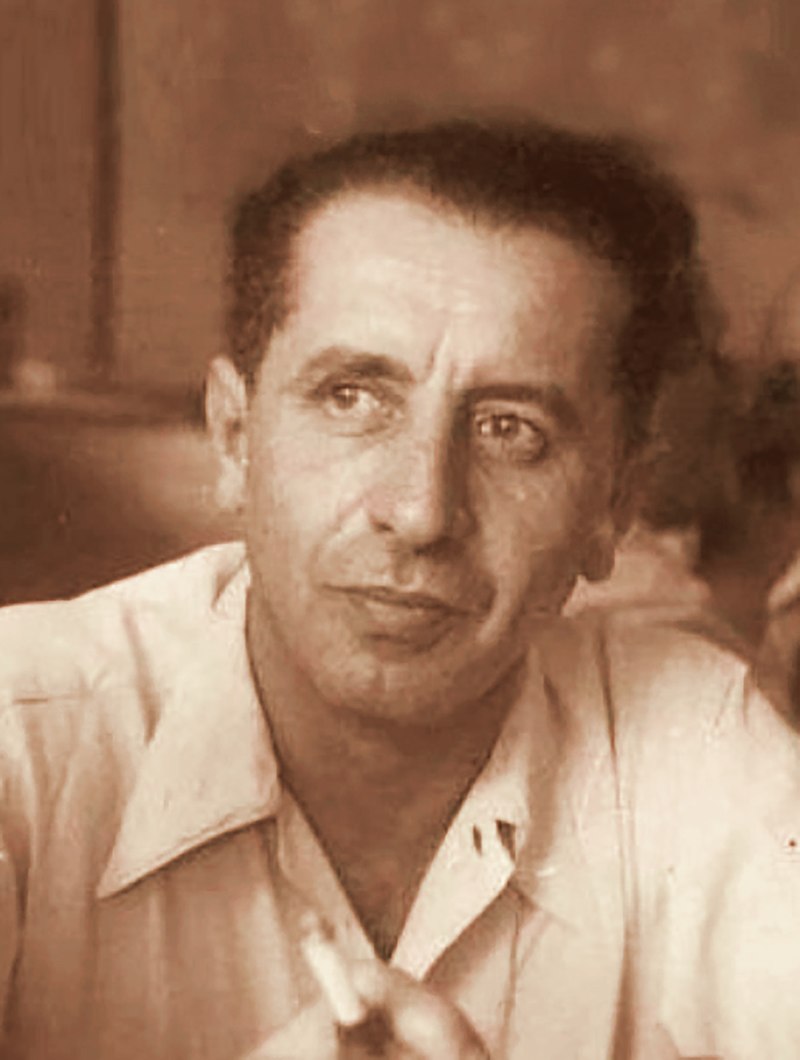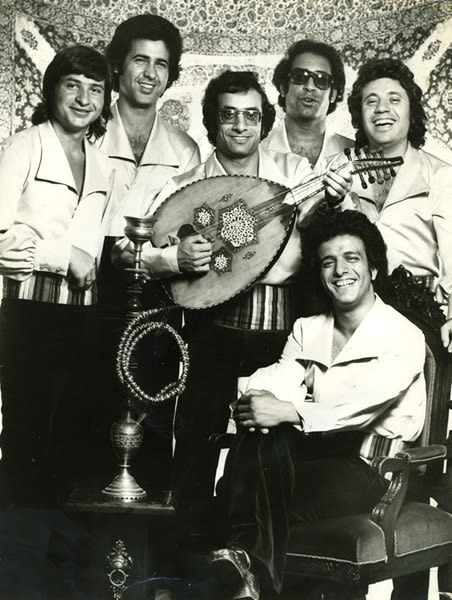Shabbat is almost here
And today we will listen to the vintage sound of Thzlily A-oud in a super hit song, Hanal’e Hitbalbela, and we’ll remember the beginnings of the Oriental Israeli music
 Hello. I hope you are well. I am surprised at the difficulty I am having in finding information about this song and the group in English. I am having to use Hebrew sources and use an automatic translator. And I am surprised because I see that the song has many versions and it sounds very familiar to me.
Hello. I hope you are well. I am surprised at the difficulty I am having in finding information about this song and the group in English. I am having to use Hebrew sources and use an automatic translator. And I am surprised because I see that the song has many versions and it sounds very familiar to me.
The melody is wonderful. But also in those days, the singers sounded authentic and the whole thing conveys to me a mixture of Eastern inspiration and also some Hasidic things, as if there is no line between the two, because obviously there is not. As if it was a sample of musical syncretism, but I think it’s all more natural than all this because what has never been separated, can’t be put together.
I hope you enjoy it.
Then, please, spread the word.
 <.>
<.>
<.>
About Nathan Alterman
The song Hanal’e Hitbalbela was written by Nathan Alterman.
The work “Jewish Folksongs in the Palestinian Period: Building a Nation”, by Esther Rutstein, available here, she explains the relevance of Nathan Alterman. She explains that:
“Nathan Alterman (1910-1970), who arrived in Tel Aviv in 1925, depicted both urban and rural life. His writings are rich and diverse and range from lyric poetry, topical verse and song, to plays and satirical works. Besides his translations […], Alterman also published weekly ballad-like verses in the Davar newspaper. Naturally, Alterman, in common with other writers of his time, loved the countryside and sang of its splendour, but the newly founded city of Tel Aviv particularly appealed to him. […] It is not surprising that due to his various talents, Alterman became a cultlike figure in Palestine, enjoyed tremendous popularity (combined with some criticism) and had an avant-garde attitude towards many aspects of life. Whether this man wrote against war or described the beauty of nature, his poems and songs appealed to the intellect and to the emotions of his readers. Alterman wrote about road-building, agricultural work, lullabies, love songs and idealistic pioneering songs. “
And Esther uses the poem ‘As Evening Falls’ (Erev Yored) to analyze the idea of rebirth in the new land:
He yells by his cart,
Reddening the embers up
with a tin fan.
Once covered in Polish soil, and set apart
From the living, he burst out, a living man.
So she continues: “In his new-found homeland, the Jew could choose to live on a kibbutz, Moshav or in the city, unlike in the European Diaspora, where freedom of choice was by and large unknown for the Jews. On the soil of his own homeland (note Alterman was born and lived 15 years in Poland), however, he will voice his own opinions and demands. No longer is he, nor the other pioneers, ‘set apart’: an alienated people. […] In Palestine, the transformed Jewish archetype is ‘a living man’, who can achieve his full potential in a rural or urban setting, in whatever way he or she wishes.”
Nathan Alterman was born in Warsaw in 1910. At that time, Poland was part of the Russian Empire. The family moved to Moscow in 1914, to Kiev in 1919, to Chisinau in 1920 and finally to Tel Aviv in 1925. Nathan studied in Paris and Nancy (he studied agriculture). He soon began to write and publish and became very popular. He translated, wrote poetry, songs and was a journalist. His first poems were published in 1931 and his first book, Stars Outside, was published in 1938. He died in 1970 of an illness. On the website of The Institute for the Translation of Hebrew Literature you can find a brief bio and a list of books in Hebrew and translated.
About Tzliley Ha’oud, or Thzlily A-oud or Tsliley Ha’ud

I learned about Rami Danoch (רמי דנוך) when I made the edition dedicated to Daklon, which you have here. I like them both very much as singers. In this recent video they are both absolutely wonderful. If you want to listen some more of then together, click here.
I have found an interview with Rami Danoch from 2017 in the newspaper Maariv, that you can find here. Blessed are the automatic translators. I will take some ideas from that source. The first phrase that is quoted from Danoch is “I have no value on Google, the heritage is going to perish“. It is true that there is not a lot of information but if you look for him on Youtube, there are many videos with his music and if you search on Google in Hebrew, there is a lot. He has a biography on Wikipedia in Hebrew which is quite extensive.
I continue reading and I understand some things have changed since 2017. He says that: “It is very important to me to take care and preserve, as much as I can, those songs that shaped the soundtrack of an entire country. If we don’t preserve it, it will disappear.” What a catastrophic vision, which I cannot share, because I see how many of these songs have many versions, are freely available on the internet and are performed by young artists. But the journalist goes on to say: “While I was talking to Danoch, I wandered around on Google looking for a Wikipedia entry about him or his legendary band. Unfortunately, I didn’t find it.” Indeed, Danoch’s bio on Wikipedia started in 2018 (it is here) and the band’s site on Wikipedia started in 2020.
Danoch explains that at the time, there was only one hour-long program that played Mizrahi music and that they were the first Oriental band to appear on television, referring to their appearance on the state channel in 1977, when he performed the song we have selected for today, in the Independence Day show, and invaded the mainstream overnight.
About their begginning, the band “Sounds of Oud” was founded by Danoch in 1974, just after the Yom Kippur War, with the aim of creating authentic Eastern music. “”I was a discharged soldier and until then I mainly sang songs in Yemeni and songs that I had absorbed in my childhood neighborhood, the HaTikva neighborhood,” he recalls. “And then I had the idea to start a band that would play these songs with an innovative and contemporary sound. I approached Yehuda Kiser, who at the time was a regular soldier who played acoustic guitar mainly songs by Beehive. I offered him to join and he agreed. At the same time, I included my canon player, David Gazela, who was a virtuoso, and then the other musicians.“” They recorded a demo in a cassette (the songs included were “Ayelet Chen”, “Hasida Tschora”, “Bozochari Mimim Yamima”, “Laner Valbshemim”, “Shalom Levan Dodi” and ” Hanal’a Hatbalabla”), and the company Azulai Brothers received one and hired them to release their first album, that achieved an extraordinary success and granted them many more appearances in the TV. Here you can watch one. Sounds of Oud has never stopped, but only Danoch continues from the initial line up.
A fierce rivalry
In the meantime, Daklon launched another band, “Sounds of the Vineyard”, and recorded four of the same songs and released an album with the company Reuveni Brothers. Danoch says they released their album 3 months before, but there is a controversy open until nowadays, about who invented the concept of a band performing mizrahi songs with that sound typical of the Western sound from the 70s.
Above I told about their recordings together with Daklon. About this, Danoch explains that:
“The truth is that we don’t talk that much. A few months ago, after mediating between us, I was contacted by his office about putting on a joint show for the two of us. I expressed willingness and came to the meeting, but then they told me that the show would be called: ‘Daklon and Sagiv Cohen host Rami Danoch,’ I felt humiliated and hurt because with all due respect, I’m not a guest, Sagiv Cohen should be the guest. It’s supposed to be an equal union of forces between Daklon and me, but he always has his head against the wall. I wish him good health, but I have some self-respect. It’s a shame that he don’t appreciate me.”
This is Sagiv Cohen. As Danoch say, “with all due respect”, I understand Danoch’s insight, as the milestone he is.
About the piece
The lyrics in Hebrew (with Latin alphabet) and in English are available in HebrewSongs.com. It is the story of a girl who is getting married and tells her future husband that she does not want to give him a son or a daughter, and that he should do it himself if he wants to. In the end a child is born before the marriage but they don’t understand how this is possible, as she is still a virgin and her husband doesn’t remember having made a son. They take him to the rabbi but both she and he say that the child is not his. They decide to wait until he grows up and then he will tell them with his own mouth where he came from.
That website explains that “This song is based on a klezmer tune recorded by the great klezmer Naftule Brandwein from 1925.” You can listen to that mentioned recording, here. The truth is that I have known this Brandwein piece for about 25 years and did not identify it as the inspiration for this one. I think only the second melody is more or less the same. The text on the website gives a few more interesting details about the piece.
“This instrumental piece served as the basis for the Hebrew song “He and She” by the Israeli poet Natan Alterman who knew this tune from his childhood in Eastern Europe. The song by Alterman was composed for one of the legendary Purim parties of Tel Aviv in the 1930s.”
You can listen to a recording from 1955 with the lyrics of this mentioned poem, here. These lyrics tell a totally different story than the one sung by the aforementioned mizrahi singers. There is an enchanting video recording of this first lyrics, by Gali Atari and Oded Ben Hur, available here. And one, by Efrat Lavi (she) and Ezra Dagan (he) that seems from a movie or a theatre act, that you can see here.
“Later on, Alterman rewrote the song as a parody about a male baby born before the wedding from an unknown father. In this new form of a parody it turned into a shir rehov (“street folksong”) sung at youth movements and among the working class in Israel.
Yet, the most interesting issue in relation to this song is its transformation into the most renowned hit of Oriental (mizrahi) pop music in the 1970s under the title of “Hanale hitbalbela” (after the refrain of the parody song by Alterman). […]”
This is what is explained above from the interview with Danoch.
“The song was reworked once again in 1976 adapted now to a text praising Betar Yerushalaym, “the” soccer team of the mizrahi working class, on the occasion of their first conquest of the Israel Cup.”
I haven’t found a recording of this, but yes many versions of the piece with the second lyrics. For instance:
- This one by the nemesis, The Sound of the Vineyard, on the voice of Daklon. I like it very much too!
- An extraordinarily kitsch (sorry, someone had to say it) version by a female singer called Rita.
- Daklon, more recently and with Haim Moshe, which is also a beauty! Listen here.
- This one with a Balkan inspiration, by Gilad Segev.
- This live version with Danoch and friends.
